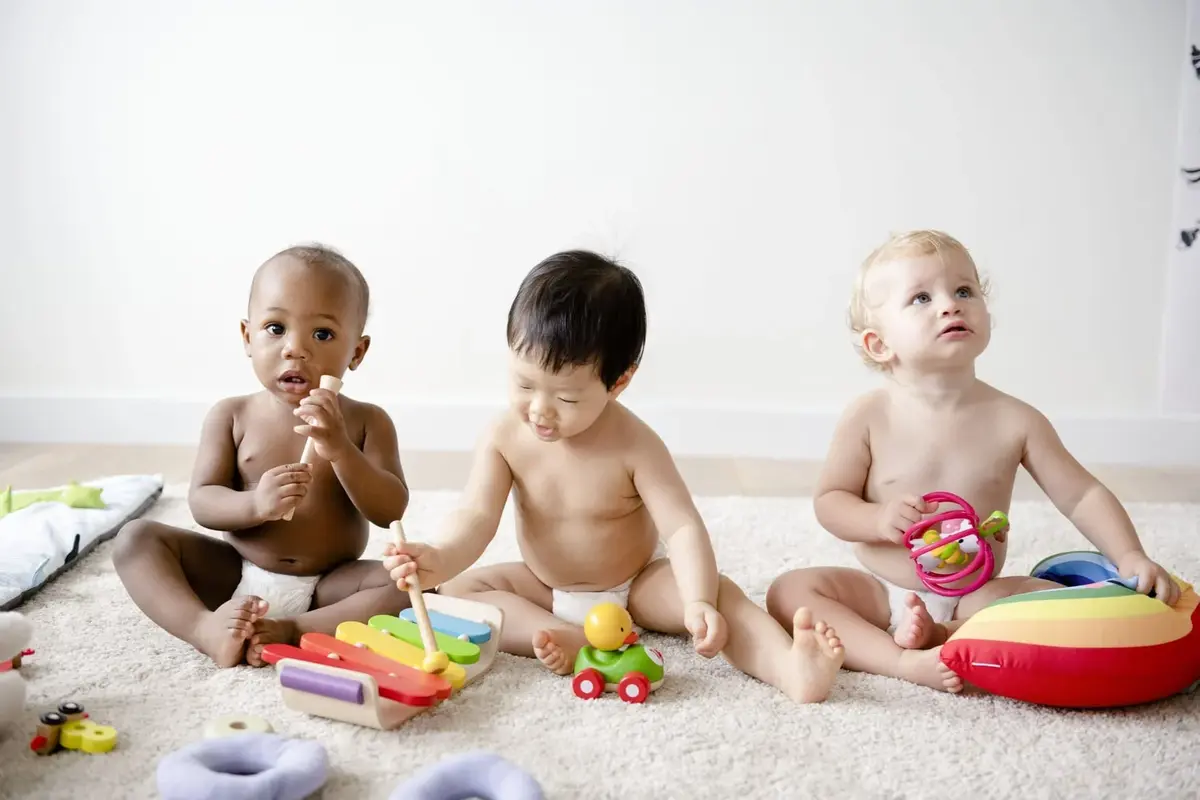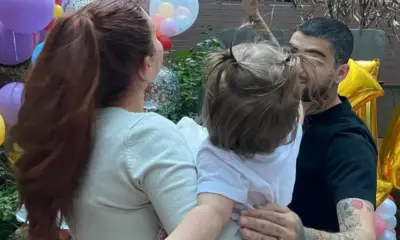Baby Development
How Much Playtime Does Your Baby Really Need?

How Much Playtime Does Your Baby Really Need?
Play is essential for your baby’s brain development and emotional growth. Every baby has unique baby playtime needs based on their age and personality. From simple smiles to fun games, play strengthens your bond and supports learning from day one.
Your baby enjoys interacting with you—their favorite companion and first teacher. But babies also benefit from time spent exploring independently.
How Often Should Babies Play?
The amount of playtime your baby needs depends on their developmental stage. Newborns sleep a lot and may only stay awake long enough for a feeding or diaper change. However, as your baby grows, their desire to interact and play increases quickly.
Play develops important social, language, and emotional skills. The American Academy of Pediatrics even suggests doctors prescribe play to parents. Still, there’s no fixed number of hours. Instead, you should respond to your baby’s cues and comfort levels.
Your baby may be happy playing solo or may reach out for interaction. Follow their signals closely and adjust as needed.
Recognizing Your Baby’s Playtime Needs
Each baby shows signs of wanting to play in different ways. Some will coo, wave, or smile to signal interest. Others might look around curiously or kick their legs with excitement.
You’ll also learn when your baby feels overstimulated. Signs include turning their head away, fussing, or rubbing their eyes. These behaviors mean it’s time to slow things down or rest.
Playtime doesn’t always mean using toys. Even diaper changes or feedings count if you engage with your baby warmly.
Easy Daily Play Ideas
You don’t need expensive gear or complex routines to meet your baby’s playtime needs. Here are some simple ways to include meaningful play every day:
- Talk and Imitate
Respond to your baby’s coos with your own sounds. These baby “conversations” build early communication skills. - Tummy Time
Give your baby daily tummy time to build neck and upper body strength. Join them on the floor to encourage interaction. - Explore Safely
Let your baby grasp, mouth, or shake toys suited for their age. Change locations throughout the house for fresh visual stimulation. - Music and Singing
Use songs and rhymes to introduce rhythm and language. Babies love hearing your voice. - Read Aloud
Reading builds listening skills and creates a soothing routine. Show pictures and use expressive voices for more engagement.
Can Babies Play Alone?
Yes—babies benefit from short periods of independent play. Independent play helps babies explore freely and build confidence. That said, you should always stay nearby for supervision.
Place your baby on a mat with safe toys. Stay within view and slowly increase the time they play without constant interaction. Even watching their hands or toes can be a form of solo discovery.
Try giving “alone time” in short bursts, starting with just one or two minutes. Over time, they’ll enjoy these quiet moments.
When to Intervene During Play
Sometimes, your baby may fuss, cry, or arch their back. These are signs they may feel tired or overstimulated. Step in, comfort your baby, and offer quiet time or a nap.
Also, if your baby doesn’t seem interested in play or is always fussy, talk to your pediatrician. While every baby is different, low interest in interaction might need further attention.
Final Thoughts
Understanding your baby’s baby playtime needs helps you support their growth with confidence. Regular play, both shared and solo, nurtures their emotional and cognitive development. As you follow your baby’s cues, you’ll naturally discover the right rhythm for play and rest.
Explore more parenting tips and baby care updates on this website.












